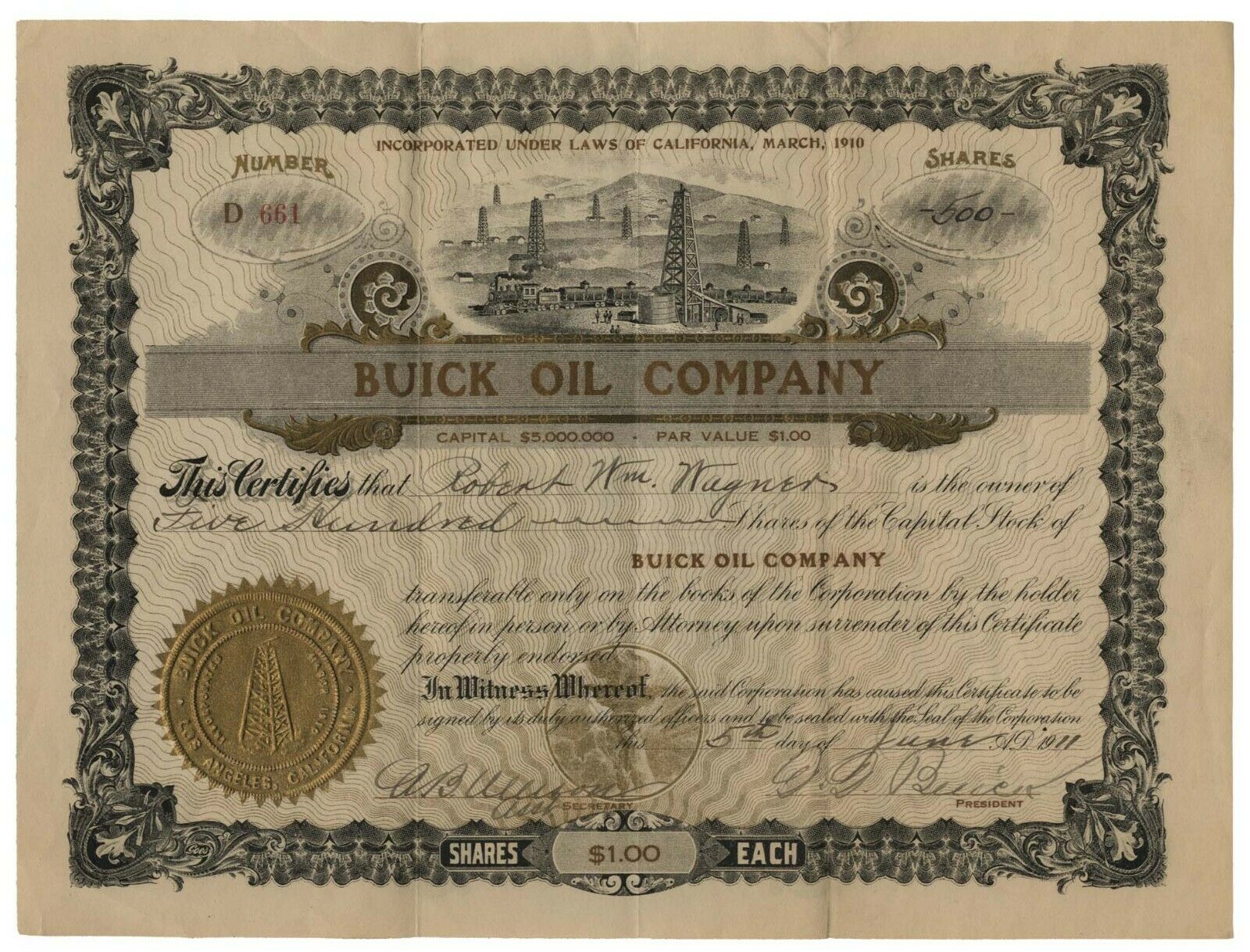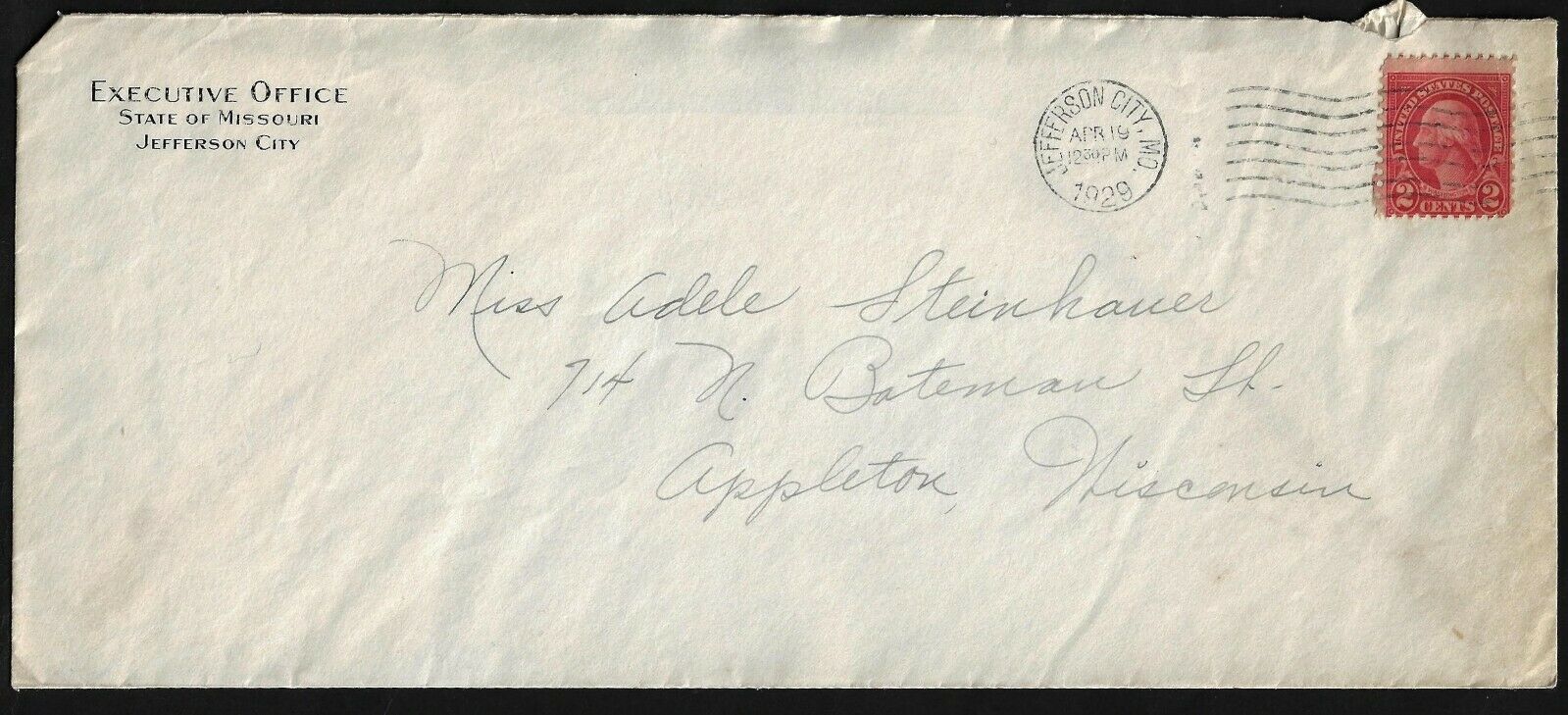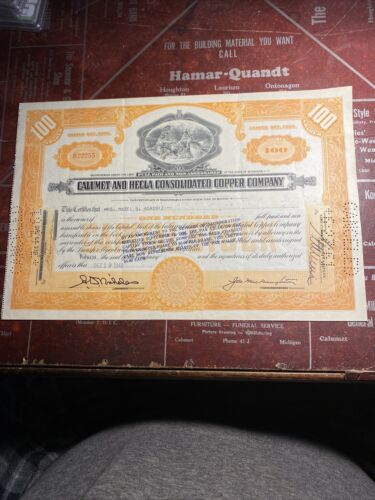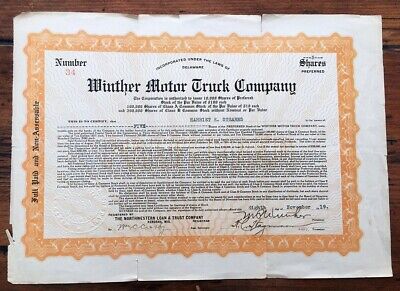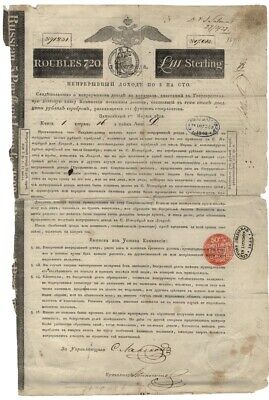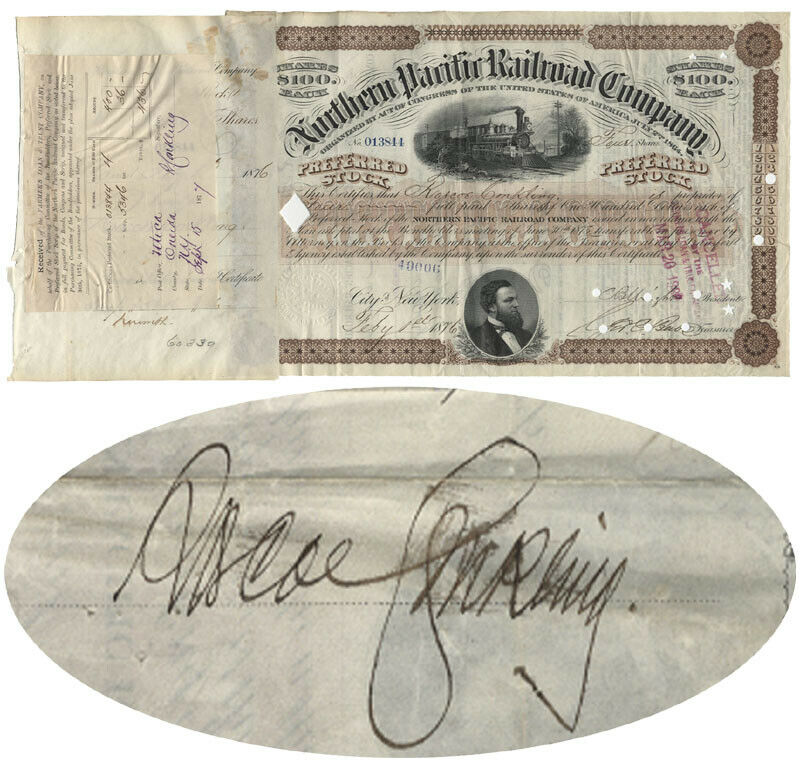-40%
BUICK OIL COMPANY STOCK SIGNED BY AUTOMOTIVE PIONEER DAVID D. BUICK
$ 303.59
- Description
- Size Guide
Description
1919, California. Stock certificate for 100 shares of the Buick Oil Company. Gold\Black. Vignette of an oilfield scene. Litho. Signed as president of the company by DAVID DUNBAR BUICK, (1855 -1929).Scottish-born American automotive pioneer and inventor.
It is an interesting, accurate, and oft-told bit of automotive lore that the man who gave the world the Buick automobile, David D. Buick, is also the man who developed the process by which porcelain is attached to cast iron, thereby also giving the world white bathtubs.
In 1899, Buick, an inveterate tinkerer, found gasoline engines and horseless carriages more challenging than plumbing fixtures, so he sold off his plumbing business to form the Buick Auto-Vim and Power Company which was to produce gasoline engines for farm and marine use.
After several reorganizations and changes in direction, the first Buick automobile was produced in 1903.
For whatever reason, David Buick was reluctant to begin production, and investors came and went until November 1904, when the Buick Motor Company was "pawned off" on the co-owner of the Durant-Dort Carriage Company, the legendary William Crapo Durant (1861-1947), who would use Buick as the cornerstone of the massive automotive conglomerate he would begin forming in 1908, General Motors.
With Durant in control, "new blood" was brought into Buick from companies such as Cadillac, and capitalization of Buick Motors increased from ,000 to .5 million, with Durant himself reputedly selling 0,000 in a single day.
Lost in the shuffle was Buick himself who, by 1908, had left to go on to a series of spectacular financial misadventures which included carburetor manufacture, an oil company, and two automobile companies (the Lorraine and the Dunbar).
By 1928, Buick had been reduced to working at the information desk at the Detroit School of Trades and, in 1929, he died in poverty at the age of 74.
Buick’s signature remains bold. Two vertical folds. Uncancelled and Extremely Fine.
